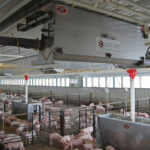Smaller Farms Are Down, But Not Out
“The economics of the whole modern situation don’t really allow you to support yourself, strictly from a family farm,” says Gary Ellis, who raises about 50 head of cattle and some 500 bales of hay on about 200 acres of...
Smaller Farms Are Down, But Not Out
“The economics of the whole modern situation don’t really allow you to support yourself, strictly from a family farm,” says Gary Ellis, who raises about 50 head of cattle and some 500 bales of hay on about 200 acres of...“The economics of the whole modern situation don’t really allow you to support yourself, strictly from a family farm,” says Gary Ellis, who raises about 50 head of cattle and some 500 bales of hay on about 200 acres of Tennessee farmland, pasture and wooded mountainside. But in an ironic turn that’s become the norm these days, it’s his “day job” as an electrical engineer that supports his work on the farm.
“We have gotten to where it’s really hard to support your family and maintain the farm … in terms of how much you can produce,” says Ellis. “So I’ve had to work full-time in order to maintain everything, including a standard of living.”
Ellis says he could sell the land “and make a little money off it,” or rent it out to custom farmers, but enjoys the work and is passionate about keeping a working farm in the family. “The No. 1 thing I want to do is to maintain the land the way it is and pass it on to my children.”
Then he pauses and says, “It’s getting to be kind of an odd thing to farm your own land, when it comes to these small to midsize farms. It’s getting to be a rarity.”
The latest census data from the U.S. and Canada backs up that assertion. In Canada, the number of farms earning less than $100,000 in gross receipts fell by about 12% from 2006 to 2011—that after a drop of 38% in the previous two decades. In the U.S., the actual number of farms in the 50- to 999-acre range fell by almost 56,000 from 2007 to 2012, a 4.7% decline.
For many smaller and middling operations, selling directly to consumers or joining co-ops has helped. Ellis has yet to work with a co-op or sell direct to consumers. Instead, he sells to a nearby stockyard. He says there’s currently not an applicable co-op in his area, but direct sales is something “I could move into, but I’m currently too busy for the added attention it requires.”
In something of a catch-22, he doesn’t have the time because of his off-farm job, which allows him to keep the farm. The long days are, however, worth the effort for Ellis, but for him it’s more than a hobby. It’s a business that provides a product, and small and midsize farms such as his offer additional capacity to feed the world.
“Parcels like these will never be incorporated into the big tracts,” Ellis continues. “So, unless the small guy farms them, the opportunity is lost and the land will go into forest or residential development. That is where the little guy … can really pick up the slack.”




